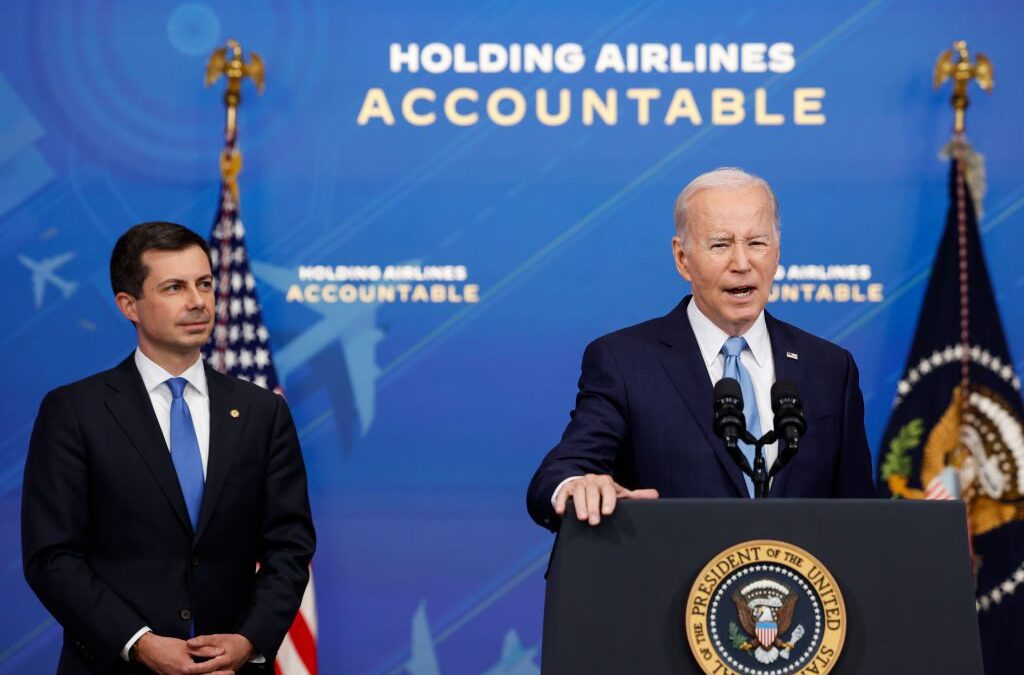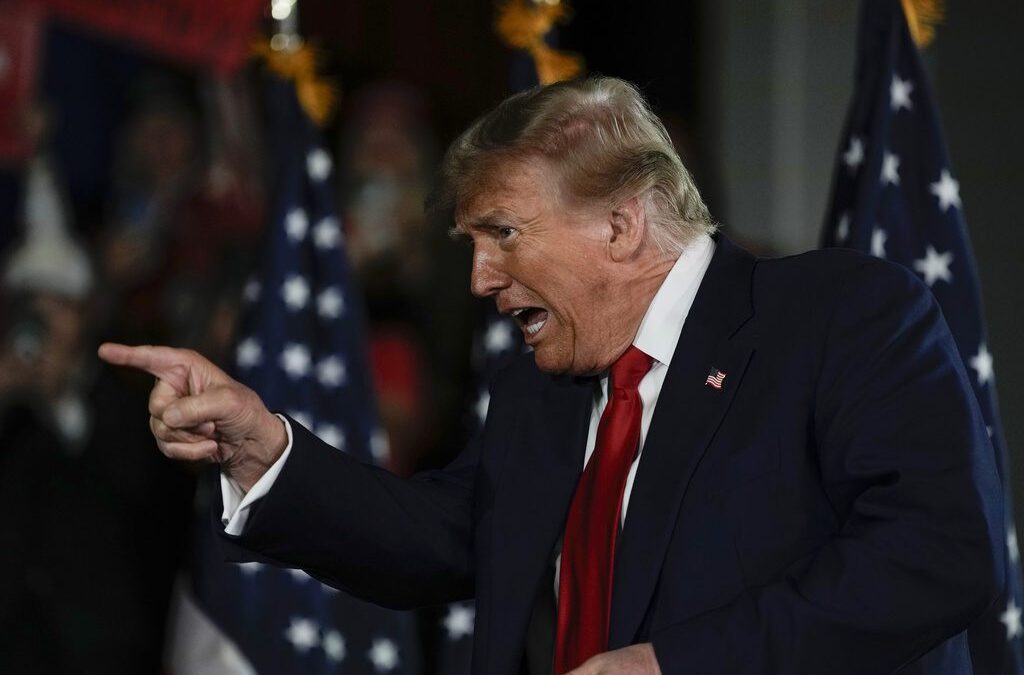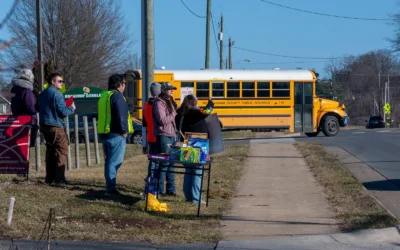
House Speaker Kevin McCarthy (AP Photo/J. Scott Applewhite)
With some conservative lawmakers calling a federal government shutdown at the end of September “inevitable,” Republican General Assembly candidates in Virginia could end up dealing with the fallout.
This fall’s races for all 140 seats in the state House and Senate are the political focal point in Virginia at the moment, but a looming federal government disaster could shift the landscape dramatically all the way down the ballot.
Unless Congressional Republicans and Pres. Joe Biden agree on a spending plan before Sept. 30, the federal government will shut down due to lack of funding.
While the blame for such a fantastic failure will likely fall on the Republicans who control the U.S. House, federal officeholders have a whole year to hope that constituencies harmed by the shutdown will forget the whole fiasco, since none will be up for reelection before November 2024.
Republicans on the ballot this fall in Virginia, on the other hand, face a significantly different calculus.
Not only are Virginia’s elections less than two months away, but also early voting begins on Sept. 22 – just eight days before the federal government could shut down.
Additionally, Virginia would suffer an outsized impact from such a shutdown.
Virginia is second only to California in terms of residents holding federal jobs; specifically, 144,000 residents of the commonwealth receive their paychecks from the U.S. government, according to the U.S. Office of Personnel Management (although a recent congressional report puts that number at 170,000). Virginia is also first among all 50 states in military spending, with much of that funding divided between the Pentagon in Northern Virginia and Naval Station Norfolk in Hampton Roads. Both regions are home to key swing seats in November’s legislative elections.
Past government shutdowns have had apparent influence on Virginia’s odd-year elections. In October 2013, the federal government shut down for 16 days in October; three weeks later, not only did Terry McAuliffe win the governor’s race, but he also led the first Democratic sweep for the commonwealth’s top three offices since 1989. A 35-day shutdown – the longest ever – that bled into January 2019 may have tarnished the GOP’s image enough that year to help propel Democrats to majority control of the state House and Senate for the first time in over 20 years.
“If you’re a Republican, the last thing you want to see is a federal government shutdown in the midst of a legislative campaign or a congressional campaign,” former GOP Lt. Gov. Bill Bolling told the Richmond Times-Dispatch. “These things generally play out to the detriment of Republicans, who are seen as the party of shutdowns.”
Some Democrats who aren’t on the ballot this year (but will be in 2024) are attempting to end government shutdowns once and for all.
Virginia Sen. Tim Kaine and Rep. Don Beyer (VA-08) are responding to the looming threat to their constituents’ livelihoods by reintroducing the “End Shutdowns Act,” a bill that would prevent future shutdowns by automatically continuing federal government funding on Oct. 1 of a given year if no appropriations bill has passed by that date. It would also prevent the U.S. Senate from moving forward with any non-emergency legislation until Congress reaches a long-term spending agreement.
“Government shutdowns have disastrous consequences for federal employees and government contractors and slow down critical government services that millions of Americans rely on like getting replacement Social Security cards and food inspections. But politicians continue to use or threaten to use government shutdowns as a negotiating tactic,” said Kaine. “This is unacceptable.”
While the effects of the government shutdown will be felt more acutely in the federal job-rich areas of Northern Virginia and Hampton Roads, Virginians all across the state will feel some of the sting.
Rep. Jennifer Wexton (VA-10), whose Northern Virginia district includes the homes and workplaces of thousands of federal employees, laid out some of the impacts on Virginia beyond furloughing federal workers, which include:
- Disruptions to private sector business operations – Businesses could see loans, mortgage applications, export licenses, federal contracts, and access to critical business data significantly delayed or decreased.
- Jeopardizing crucial federal benefits – Government assistance programs could be disrupted, increasing hardship for 850,000 Virginians who rely on Supplemental Nutrition Assistance Program (SNAP), over 120,000 Virginians who receive monthly Special Supplemental Nutrition Program for Women, Infants, and Children (WIC) benefits, as well as other Virginians who receive benefits from federal programs.
- Impacts on travel and tourism – Furloughs and pay freezes for TSA and air traffic controllers (who are federal employees) could mean longer lines at security checkpoints at Virginia airports, flight delays, delayed passport processing, as well as limited access to any of Virginia’s 22 national parks.

Race for Virginia Attorney General in 2025 taking shape
Jay Jones got endorsed by a Fairfax attorney previously seen as a possible rival this week in the Democratic primary for attorney general. The race...

New Biden rules deliver automatic cash refunds for canceled flights, ban surprise fees
In the aftermath of a canceled or delayed flight, there’s nothing less appealing than spending hours on the phone waiting to speak with an airline...

State Sen. Hashmi of Chesterfield enters 2025 lieutenant governor’s race
Hashmi, a champion for reproductive rights, joins a crowded field seeking the Democratic nomination. Yet another candidate is entering the fray to...

Trump says he would allow red states to track pregnancies, prosecute abortion ban violators
In an interview published by Time magazine this week, former president Donald Trump detailed his plans for a potential second term and said he would...

VIDEO: Youngkin, Democrats to start over on budget talks
Republican Gov. Glenn Youngkin and Democratic leaders in Virginia's General Assembly are re-starting state budget negotiations on friendlier footing...

Birth control protections await action by Youngkin
Republican Gov. Glenn Youngkin has until May 17 to block or sign into law stronger legal protections for people to access contraception The fate of...





